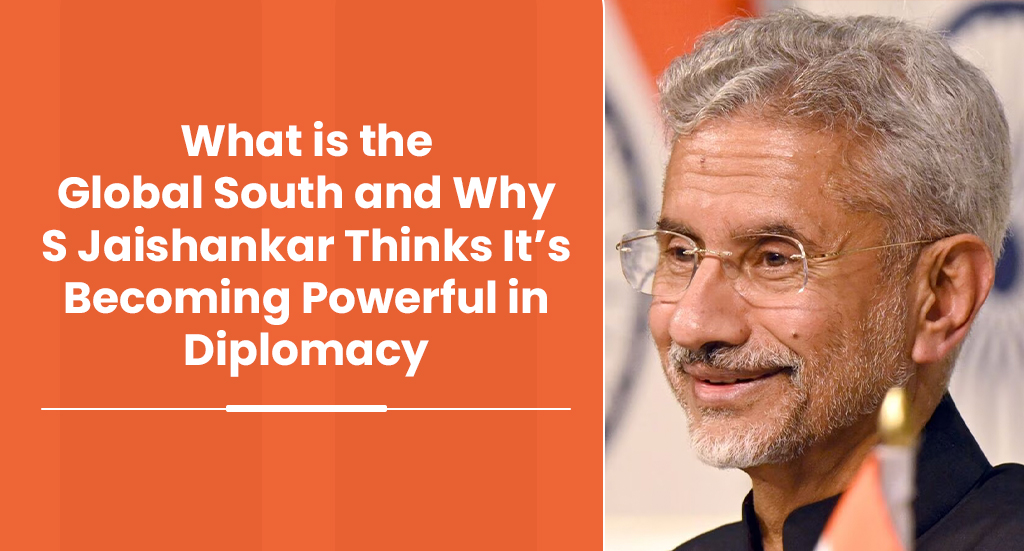India’s External Affairs Minister S Jaishankar recently talked about how countries in the Global South are becoming more important. This discussion happened when he was talking to T.P. Sreenivasan, a former Indian diplomat, for Asianet News during the course of his visit to Thiruvananthapuram for launching the PM Vishwakarma scheme. The term ‘Global South’ refers to countries that are still growing and improving, and are often not as rich or advanced as some other nations. These countries mainly belong to the southern part of the world, including places in Asia, Africa, and Latin America that are facing greater levels of poverty, income inequality, and challenging living conditions compared to the richer countries of the Global North. Speaking about the Global South’s significance, the external affairs minister described it not as a defined group, but as a sentiment of solidarity among developing countries.
However, the Global South is not really a geographical term. Many countries included in the Global South, such as India, China, and those in the northern part of Africa, are in the northern hemisphere. The term does not cover Australia and New Zealand, both in the southern hemisphere.
These countries matter because they have the potential to become stronger and have a bigger role in world affairs. They often have valuable resources, large populations, and growing economies. The influence and impact of these countries on the world stage are increasing.
As for India leading this group, it’s a possibility. India is a significant player in the Global South with a large and growing economy, a vast population, and increasing influence in international matters. Leadership, however, requires not only strength but also effective diplomacy, cooperation, and support from other nations in the Global South.
On shedding light on Global South’s rising role in diplomacy, the external minister said, “ I think we need to get over the syndrome of the past that the West is the bad guy and on the other side are the developing countries. The world is more complicated, the problems are much more complicated than that.”
Jaishankar said we shouldn’t blame only the Western countries for economic problems in Asia and Africa. He suggested that Chinese economic actions are a big worry, especially for countries flooded with cheap goods, causing difficulties.
When asked why the Chinese President, Xi Jinping, didn’t come to the G-20 summit in New Delhi and if it was to prevent India from looking like a leader of the Global South, Mr. Jaishankar said the actual reasons are uncertain and open to interpretation.
He mentioned that the problem nowadays is that for the past 15-20 years, countries have been feeling the unfairness of globalisation. This happened because their goods, factories, and jobs were under pressure when a lot of inexpensive products from China came into their markets.
People in these countries were getting upset because they felt like they were being used only to benefit another country’s economy. He emphasised that he wasn’t supporting the West in this matter. He pointed out that in today’s global world, certain countries are heavily focusing on manufacturing and providing support to it, which is causing problems for the economies of many other nations.
However, India’s ability in making things, farming, doing great space missions like Chandrayaan-3 mission, and vaccinating people has inspired the Global South, which includes the African Union. It makes them think, ‘Hey, if India can do it, we can too!’
He also agreed that Prime Minister Narendra Modi’s strong and clear guidance in paying attention to the Global South and including the African Union in the G20 Summit was important. He said that India leading this summit showed a shift in how the world makes important decisions. He noted that the usual big powerful countries or the Western countries don’t have to always decide what’s on the agenda.
The countries in the Global South are moving forward and becoming more important. This is a big challenge for the richer countries in the Global North because their power and influence are decreasing.
Eventually, the ‘Rise of the Rest’ will happen, and the leaders from both sides need to work together and cooperate.








